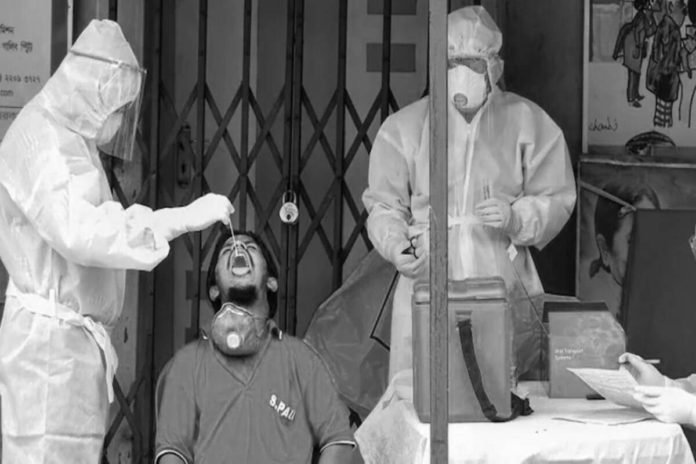India has reported 7,974 fresh Covid-19 cases in the last 24 hours. The active caseload in the country stands at 87,245.
The active cases currently account for 0.25 percent of total cases, which is the lowest since March 2020. As many as 7,948 recoveries were recorded in the last 24 hours, which increases the total recoveries to 3,41,54,879. The recovery rate is 98.38 percent, which is the highest since March 2020.
The death toll stands at 4,76,478. The daily positivity rate has been less than 2 percent for the last 73 days. A total of 66.02 crore Covid-19 tests have been conducted so far.
As many as 1,41,80,42,210 vaccine doses have been provided to States and Union Territories as of December 16, 2021. 135.25 crore vaccine doses have been administered so far under Nationwide Vaccination Drive.
The total number of Omicron cases in India is 73, as per media reports. In India, the Omicron variant has been detected in West Bengal, Rajasthan, Gujarat, Delhi, Maharashtra, Karnataka, Telangana, Andhra Pradesh, Tamil Nadu, and Kerala. West Bengal reported its first Omicron case on Wednesday, December 15. Tamil Nadu reported its first Omicron case on Wednesday evening. Maharashtra and Kerala reported four new Omicron cases each on Wednesday. The total tally of Omicron cases in Maharashtra has increased to 32.
“The Omicron variant of COVID-19 is likely to see a surge in cases in January next year across Maharashtra,” media reports quoted Additional Chief Secretary Health Dr Pradeep Vyas as saying on Wednesday.
A new study has found that Covid-19 vaccines, and especially booster shots, can provide protection against severe outcomes from infection with the Omicron variant. However, the World Health Organization (WHO) has said that Covid vaccines may be less effective against Omicron.
The Centre aims to fully vaccinate 65 percent of India’s adult population by the end of December and will review its Covid vaccination plan after that, according to reports. The Centre will also review allowing booster doses and vaccination for children.
More about Omicron
The Omicron variant has been called a variant of concern by WHO based on studies that shows it has several mutations.
Still a lot of research is underway to evaluate its transmissibility, severity and reinfection risk.
The Omicron variant has been detected in several regions of the world. WHO reports that the likelihood of the Omicron variant spreading further globally is high.
It is not currently known if the Omicron variant is more or less severe than other strains of COVID-19, including Delta. Studies are ongoing and this information will be updated as it becomes available.
It is not yet clear whether Omicron can spread more easily from person to person compared to other variants, such as Delta.
However, being vaccinated and taking precautions such as avoiding crowded spaces, keeping your distance from others and wearing a mask are critical in helping to prevent the spread of COVID-19, and we know these actions have been effective against other variants.
Researchers are looking into any potential impact the Omicron variant has on the effectiveness of COVID-19 vaccines. Although information is still limited, WHO believes it is a reasonable assumption that the currently available vaccines offer some protection against severe disease and death.
It is also important to be vaccinated to protect against the other widely circulating variants, such as the Delta one. When it’s your turn, make sure to get vaccinated. If your vaccination involves two doses, it’s important to receive both in order to have the maximum protection.
According to WHO, early evidence suggests that people who have previously had COVID-19 could be reinfected more easily with Omicron, in comparison to other variants of concern. Information is still limited though and we will share updates as it becomes available.
Source: UNICEFRead more Health News
Latest update Omicron

